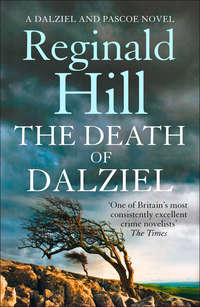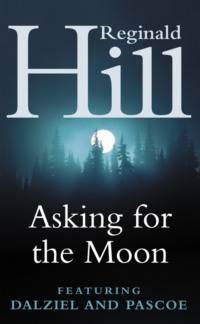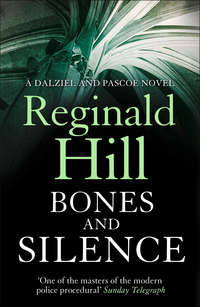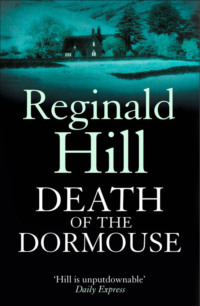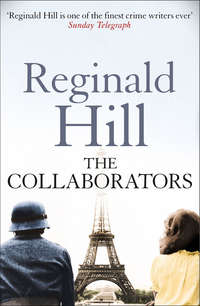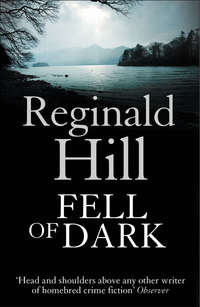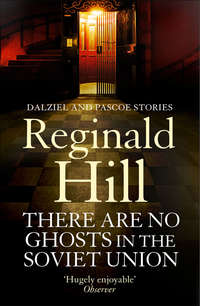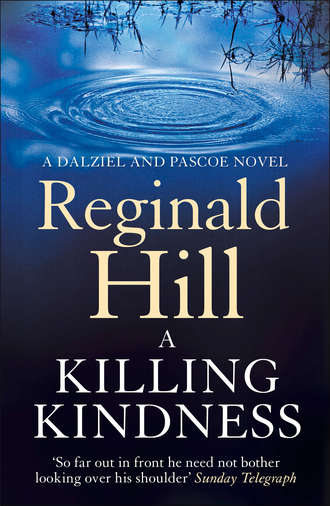
Полная версия
A Killing Kindness
When he realized the true nature of their enquiries, however, his agitation was intense. The police took a statement, then went on to the bank. No one had heard of or seen Brenda since she left the previous evening, but there had been a couple of attempts to get her on the telephone earlier that morning, apart from Mrs Sorby’s, that was.
By lunch-time, the police were taking things very seriously. Jack Sorby had created a diversion by going round to the Wheatsheaf Garage and attempting to assault Tommy who by this time was too miserable and demoralized to defend himself. Fortunately, the police arrived almost simultaneously and established peace. Tommy wasn’t up to much except repeating his story mechanically but at least they solved the mystery of the other phone calls. He had made them, he admitted. When asked why, he said with a brief flash of his customary liveliness, ‘To get her to back up my fucking story about the drink, of course.’
This made sense to Pascoe, who since the two stranglings had been told by Dalziel to keep an eye on all female attacks or disappearances. While it didn’t actually confirm Tommy’s version of the evening, it helped a lot; or it meant he was ten times more cunning than he looked.
What finally took Tommy off the hook was the last thing anybody wanted – the discovery of the body. It was not pleasant. Right through the heart of the city, a straight line alongside the shallow and meandering river, ran the old canal, a relict of the last century and little used since the war until the holiday companies began to sell the delights of inland cruising in the ’sixties and commercial interests began to react to soaring fuel costs in the ’seventies. It was a barge that quite literally brought Brenda’s body to light. Riding low with a cargo of castings, the barge was holding the centre of the channel when a careless cruiser forced it over towards the bank. The bargee swore with proverbial force as the bottom bumped and the propeller stuttered, thinking he’d caught some sizeable bit of rubbish dumped in the murky waters.
Switching off the engine he hurried to the stern and peered over. At first he was just aware that the dark brown water was imbued with a richer stain. Then as he saw what came drifting slowly to the surface, he began to swear again but this time as a kind of pious defence.
The pathologist was able to confirm that all the mutilations on the body were caused by the action of the propeller and had nothing to do with the girl’s death. She had been strangled but had not been dead, though possibly moribund, when she entered the water. Asked when death occurred, he refused to be more definite than not less than twelve, not more than twenty hours. Pressed, he became irritable and talked about special circumstances such as the high temperature of the canal water and the opening up of the chest and lungs by the propeller. Pascoe, long used to the imprecisions of science, had looked for other evidence of timing.
Twenty hours took him back to six-thirty P.M. on the Thursday. He was able to move forward to eight P.M. because that was when Brenda and Tommy had met. Their rendezous had been at the Bay Tree Inn, a half-timbered former coaching inn not far from the city centre which had fallen into the hands of a large brewery group renowned for the acuteness of their commercial instincts and the awfulness of their keg beer. Now the Bay Tree’s history attracted the tourist set, its twin restaurants (one expensive, one extortionate) attracted the dining set, and its cellar disco attracted the young set. Thus it was always packed. The meeting had been witnessed by Ron Ludlam, a workmate of Tommy’s and one of the friends of whom Mr Sorby so fervently disapproved. He had been drinking with Tommy while he waited for Brenda. Brenda had not wanted to stay at the Bay Tree. Ron Ludlam who had accompanied the distraught Tommy home after the news of Brenda’s death, said she seemed more interested in having a serious talk with her fiancé about marital matters. Alone. They had gone off in the noisy, multicoloured mini.
According to Tommy they had spent the evening just driving around. Without stopping? Of course they had stopped, just parked out in the country to have a fag and a talk. Was that all? They might have played around a bit but nothing serious.
‘Nothing serious’ was confirmed by the pathologist. Brenda was virgo intacta.
The canal was flanked on the one side by warehouses. Access could be obtained to the waterfront, but only by dint of climbing over security gates. In addition, from eleven P.M. on, there had been great police activity in Sunnybank, the canyon-like road which serviced the warehouses, for it was in one of these that the night watchman, whose injuries had kept the doctor from sampling Tommy Maggs’s blood, had been attacked.
On the other side of the canal, the side where the body had been found, was a grassy isthmus planted with willows and birches to screen the industrial terrace from the view of those taking the air in the pleasant open spaces of Charter Park. This air on the night in question was filled with music and merriment. The city’s fortnight-long High Fair was coming to the end of its first week there. The City Fathers in a fit of almost continental abandon permitted the municipal Boating Station to stay open until midnight during the fair and those who tired of the roundabouts and sideshows could hire rowboats to take them across to the isthmus where the trees were strung with fairy lights and a couple of hot-dog stands provided the wherewithal for a picnic. This area was far too well populated for a body to have been dumped in the canal until eleven-thirty when the clouds which had slowly been building up in the south suddenly came rolling northwards, ate up the moon and the stars, and spat rich, heavy raindrops into the sultry night. Within twenty minutes the isthmus was vacated by laughing holiday-makers and cursing hot-dog men alike, while on the canal the pleasure cruisers had either puttered off to more congenial moorings downstream or battened down for the night.
Now a regiment of corpses could have been deposited without drawing much attention.
But by now, Tommy Maggs was already in deep conversation with the police and was to continue in their company until dropped at his door at one-thirty A.M. His father, watching a late western on the telly, confirmed his arrival. So unless he later stole from the house and, carless, contrived to re-encounter Brenda, lure her to the canal bank some five miles away and there murder her, he was in the clear.
But what had happened to Brenda after she left her boy-friend by his broken-down mini, no one could say. Except one person.
At six o’clock on Friday the news editor of the Evening Post picked up his phone.
‘I must be cruel, only to be kind,’ said a voice.
The line went dead.
The news editor yelled for his secretary.
Chapter 3
Ellie Pascoe was not enjoying the rich rewarding experience of pregnancy.
At roughly the halfway point she was still suffering the morning sickness which should have died away a month earlier and was already experiencing the backache and heartburn which might decently have waited till a month later.
‘For Christ’s sake don’t make soothing noises,’ she said as she returned pale-faced to the breakfast table. ‘I’m having a baby, not turning into one.’
Pascoe, warned, returned to his cornflakes and said lightly, ‘You shouldn’t have bought the ticket if you didn’t want the trip.’
‘I didn’t know it meant the end of civilization as I know it,’ she said grimly.
‘At least you don’t have to go to work,’ said Pascoe.
They were well into July and the long vacation had begun at the college where Ellie lectured.
‘It’s the students who get the holiday, not us,’ she retorted. This was an ancient tract of disputed land, full of shell holes. Pascoe made a tactical withdrawal.
‘Can I have the butter, please?’
‘If by that you mean that if I’d taken your advice and resigned last term I wouldn’t need to be thinking about next September’s courses then let me remind you that, first, I personally need the work and, secondly, we personally need the money and, thirdly, that women having fought for centuries to get the meagre rights they’ve got, including the right not to lose their jobs because some careless fellow puts them up the stick, I am not about to renounce those rights just because you’re feeling all patriarchal and protective. Excuse me.’
When she came back, Pascoe said, ‘Thank God I didn’t ask for the marmalade,’ but she didn’t respond.
‘What are you doing today?’ he asked as he finished his coffee.
‘I’m going to be sick at the Aero Club,’ she said.
‘Good God,’ he said, alarmed. ‘You’re not taking up gliding, are you?’
‘No. Just having lunch there. They do a chicken-in-the-basket. Today they might see it there twice.’
‘Come on,’ said Pascoe. ‘It can’t be that bad. Can it? And why the Aero Club? Not your normal stamping ground.’
‘I’m meeting Thelma.’
‘Lacewing? You surprise me. I shouldn’t have thought it was her scene either.’
‘And what do you know about Thelma’s scene?’
‘Me? Nothing. Nothing at all,’ said Pascoe uninterestedly.
He had good reason for sounding uninterested in Thelma Lacewing. First she was the leading light of WRAG, the Women’s Rights Action Group which put the law a very poor second to its principles; secondly, he had recently helped to put her uncle, a respected local businessman, away on a pornography charge; thirdly, he (in a purely aesthetic sense of course) rather fancied her and sometimes thought she might rather fancy him.
‘Anyway, her scene or not, it’s her idea,’ continued Ellie. ‘I promised that when the summer vac came and I had more time, I’d take some of the secretarial work off Lorraine Wildgoose’s plate.’
‘But you said it was only students who got holidays,’ protested Pascoe.
‘Oh, go to work!’ said Ellie disgustedly. ‘See if you can stop that lunatic from killing more than half a dozen women today.’
As he finished his toast, he said crumbily, ‘Wildgoose. That rings a little bell. Do I know her?’
‘I don’t think so,’ said Ellie. ‘Though she’s all the things you admire in a woman. Forty, ferocious, teaches French and is in the middle of a rather unpleasant marital shipwreck.’
Pascoe shuddered and rose from the table.
When he returned with his briefcase ready for departure, Ellie was immersed in the newspaper.
‘Hey, there’s a little bit here about fat Andy calling in a clairvoyant.’
‘Oh God. Let me see.’
He looked at the paper and said in relief. ‘It’s just a couple of lines and I don’t think he gets the Guardian anyway.’
‘Perhaps not. But just think how large it’s likely to be printed in the tabloids! It’s a good story. At least, you made it sound like a good story last night.’
‘Don’t!’ he said, kissing her.
‘Peter,’ she said thoughtfully when he’d finished, ‘that transcript of the tape you showed me. Can I borrow it?’
‘Why on earth should you want that?’
‘Well, it’s just come back to me. I woke up in the night and I was lying there thinking and I got this brilliant idea, you know how you do. About that woman in the trance. Well, I know you said it can’t have anything to do with what actually happened, but I was remembering, last year the museum organized a dig in Charter Park, do you remember, at the bottom end beyond the War Memorial. Our historians were involved. It was the Roman Level they were interested in, but they took one section of the trench much deeper just to see. It was clear there’d been a settlement thereabouts for as long as men have been settling.’
‘Fascinating,’ said Pascoe. ‘So what?’
‘So suppose when you die, time shifts? Well, why not? It certainly stops, doesn’t it? Briefly for a moment as she dies, she goes back. You know they say your life flashes before you as you drown? So, it’s a cliché, but it’s what people who’ve been saved from drowning have said. Suppose it’s not just your life but the whole of life. And once you’re beyond yours, you’re beyond the point of being saved.’
‘All right, all right,’ said Pascoe, disturbed by what for Ellie was an untypical flight of fantasy. ‘So …?’
‘So for a moment, that girl is out of our time and into, say, the early Mesolithic period. The water runs clear. And because of the time shift, it’s still daylight. And those faces, what did she say, “like beasts at their watering,” small wary brown-skinned people, Cresswellians perhaps, or some tribe of prehistoric man. And the birds she saw, pterodactyls perhaps.’
‘Jesus!’ said Pascoe.
‘All right. Be dismissive. But it seems to me that this famous open mind you’re always yapping about is about as open as a bank on Saturday.’
‘I was merely expressing surprise at the depth of your knowledge of prehistory,’ he protested speciously.
She looked sheepish.
‘I know about as much as you,’ she admitted. ‘That’s why I wanted the transcript. Thelma was in on the dig, it’s one of her hobbies. I thought she might be able to put me right.’
‘A lady of many parts, that one,’ said Pascoe. ‘Mainly untouched by human hand, or so she would have us believe.’
‘What on earth can you mean?’ she said, grinning.
‘All right,’ he said, opening his briefcase. ‘Here it is. We’ve got a copy at the station, but don’t lose it all the same. Though strictly speaking, it’s hardly an official document! And in return, promise me you won’t let those viragos con you into taking on more than you can cope with. OK?’
‘Yes, sir,’ she said.
He kissed her again, sternly, and left.
But as he backed out of the drive he suddenly thought pterodactyls! and chuckled so much he almost hit the milkman.
Nevertheless something of what Ellie had said must have tickled his subconscious, for when he found himself crawling in the nine o’clock traffic which seemed likely to stretch all the way to ten, almost without taking a conscious decision he turned down a side street and ten minutes later found himself driving through the gates of Charter Park.
The dry weather had baked the ground so hard that even the odd thunderstorm hadn’t softened it and the turf was very little cut up so far. But it was well worn and strewn with litter like the route of a Blind School paperchase. Pascoe wondered how long the fair would survive. It had changed considerably even in the comparatively few years he had known it.
Up until the First World War it had been one of the great horse-fairs. There were still people who could recall the days when drovers and gypsies came from all over the North and the roadsides for miles on the approaches to the town were lined with caravans, not the sleek, shining motorized caravans of today, but the old wooden ones, gold and green and red and blue. Gradually during the century, its character had changed in the direction of a pure pleasure fair, but horses had still been sold as recently as the early ’sixties. But there had been growing complaints, not least from the regular fairground people who considered themselves several cuts above the Romanys and objected to their presence on all kinds of grounds, notably their hygienic deficiencies, both human and equine. The Showman’s Guild added its weight to the protests and when a small herd of gypsy ponies broke loose from the Park and trotted through the centre of town, causing several accidents and much indignation, horses were finally banned from Charter Park. There was still a small gypsy presence at the Fair, but the main gypsy encampment was now on a stretch of the old airfield to the south and most of their business was done door-to-door rather than at the fairground.
So pleasure had won the day, but even the taste for pleasure changes and fairs are limited in the ways they can keep up with these changes. Also, though in the past this had traditionally been the city’s holiday fortnight, and many people still stuck to the habit, many more objected to being told when they should or should not go on holiday. Another decade, thought Pascoe, and the High Fair could well be another casualty in the war for individual rights.
But at the moment it still covered a great deal of ground. Quiet now, though there was plenty of movement in the caravan park, his mind peopled it with the milling crowds of a hot summer’s night. After ten-thirty when the pubs closed, there would have been a new influx of noisy and not very perceptive pleasure-seekers. Easy for one girl, or one couple, to pass unnoticed here. But how had Brenda Sorby got here in the first place?
Pascoe walked slowly over the fairground, deep in thought. One possibility was that the girl had met someone she knew on the way home last Thursday night and accepted an invitation to go to the fair. But it was after eleven P.M., so he would have needed to be very persuasive. Perhaps she had simply been offered a lift home and it wasn’t till the car was moving that the Fair had been mentioned. By the time they got here, the storm would have broken, the crowds be heading for home. But that still left the fair people who would be clearing up, mopping up, counting up for another hour or so. So had she just sat in the car for that time? Perhaps she was already dead or unconscious? Perhaps …
He was walking past a fortune-teller’s tent and the sight of it made him think of Sergeant Wield’s experience the previous day. He had recounted it jokingly to Ellie when he got home but she had not been amused. It strikes me you can do with all the help you can get, she had said. She seemed to be taking these murders very personally. Perhaps an emotional side effect of her condition? He had had more sense than to say so!
He reached the small landing-stage where the hire-boats were moored.
Joe, the boatman, was not there yet for which Pascoe was grateful. He was the kind of surly suspicious Yorkshireman who at birth probably examined his mother’s breast closely for several minutes before accepting the offer. But at least he made a definite witness.
No, he didn’t recognize the photo of Brenda Sorby. No, there was no boat unaccounted for. No, there was no one who had come back alone.
Forced to admit that the sudden storm had brought the boaters back in a bit of a rush, he grudgingly conceded that a foursome might have come back as a threesome. But no singles, and he’d seen ’em all. Rain or no rain, he checked the gear in each boat before refunding the two pound deposit; and all deposits had been returned.
But the Choker must have used a boat. The nearest bridge giving access to the isthmus was a mile downstream, too far to risk carrying a body. In any case, why come so far to dump it?
The only alternative was that the Choker was one of the barge people, a theory approved by Andy Dalziel who tended to lump all people who lived itinerant lives together as ‘dirty gyppos’. Pascoe, however, had done a paper at university on the education of ‘travelling children’ in England and knew that the attitudes and lifestyles of the different societies varied considerably. Fairground and circus folk, for instance, were generally speaking much concerned about their children’s schooling, and where they could afford it, often sent them to private boarding-schools. Gypsies on the other hand were much more suspicious of ‘the system’, and much more conscious of their independence from it, a consciousness which made integration of their children into any conventional school much more difficult. The barge people in the same way had once presented an even greater problem, but one which had been in part solved by time and the disappearance of their way of life as canal traffic ceased to be economically viable. There were signs of a resurgence recently and no doubt, thought Pascoe, the problem too would return.
Meanwhile he had ensured that everyone in any kind of craft on the canal that night was traced and interviewed. All had been in company, all reasonably alibied, none had heard anything. In any case the signs were that the girl had been put into the water from the bank, not a boat. There were traces of mud on her dress corresponding to that in a shallow groove in the bank close by the place where the body was found.
Pascoe glanced at his watch. Brooding time over, he decided. There was work to be done. He began to retrace his steps.
The fairground was livelier now. Business wouldn’t really get under way till much later in the morning, but meantime there were things to be done, machinery to be checked and oiled, canvas covers removed, brass to be polished. At side-stalls like the rifle-range and the hoopla there were the gimcrack prizes to be set out, gun-sights to check in case they had deviated to accuracy, and hoopla rings in case they had stretched to go over the whisky bottle.
By the fortune-teller’s tent a young woman in jeans and a yellow suntop was talking to a man in a tartan shirt and brown cords, gaitered militarily above ex-army boots. He was about forty with the knitted brow and dark craggy good looks of a Heathcliff.
They looked at Pascoe as he passed and the man said something.
A moment later Pascoe stopped and turned as the woman’s voice called, ‘Excuse me!’ She had started after him. The man watched for a moment and then strode away towards the trailer park.
‘Aren’t you one of the policemen?’ said the girl. Anyone under twenty-five now qualified as a girl, Pascoe realized ruefully. This one certainly did; fresh young skin, clear brown eyes, luxuriant auburn hair escaping from the green and white spotted bandanna which she had tied around it.
‘That’s right,’ said Pascoe. ‘Does it stand out?’
‘I saw you the other day, I think,’ said the girl, evading the question. Pascoe nodded. It was likely. He had spent a great deal of time here on Friday afternoon.
‘You work here?’ he asked.
‘Yes,’ she said. ‘Do you have a moment?’
Without waiting for his answer she set off towards the fortune-teller’s tent and lifted the flap.
Pascoe paused before the entrance, partly to establish his independent spirit, partly to read the sign. Madame Rashid, it said, Interpreter of the Stars, Admission 50p. The lettering was pseudo-Arabic and the words were surrounded by a constellation of varying hues and shapes.
‘The price of the future’s gone up,’ he said.
‘You should try having a full horoscope cast,’ she said seriously. ‘Besides, we’re not allowed to tell the future.’
‘I know,’ he said.
‘Oh, of course you would. Won’t you come in?’
He passed by her under the flap.
It was a bit of a disappointment, reminding him more of a Boy Scout camp than the Eastern pavilion he had half expected. The smell was of damp canvas and trodden grass and the only furniture was a plain trestle table and two folding chairs.
A suitcase lay on the table and she pointed to this as if sensing his disappointment and said, ‘It looks better when I get the props out.’
‘I’m sure,’ said Pascoe. ‘What did you want to see me about Miss-er-Rashid?’
She laughed, very attractively.
‘No,’ she said. ‘I’m Pauline Stanhope.’
She held out her hand. He took it. The name sounded familiar.
‘And I’m Detective-Inspector Pascoe,’ he said.
‘I thought you must be. It’s about yesterday, Inspector Pascoe. Won’t you sit down?’
He unfolded the chairs and they sat opposite each other at the table, as though for an interrogation. Or a fortune-telling. It depended on your point of view.
‘Yesterday?’
Yes. Aunt Rose was very upset when she read the paper.’
‘Was she?’ said Pascoe.
Aunt Rose? Of course, Rosetta Stanhope. And this was the niece.
‘Rosetta. Rashid,’ he murmured as the enlightenment spread.
‘That’s right. I’m sorry. I thought you’d know all about us. All those questions.’
‘Think of all those answers, Miss Stanhope,’ he said sadly. ‘Someone has to edit.’
Everyone who worked on the fairground had been questioned, naturally. Everyone who admitted visiting it on Thursday night also. Everyone who lived on the same street as the Sorbys. And the next street. And maybe the next. Everyone who worked with her. Everyone who lived on the streets she would have walked through on her way home from the broken-down car. Everyone who had a barge or a cruiser or a craft of any kind which could have been anywhere on that stretch of the canal that night.


